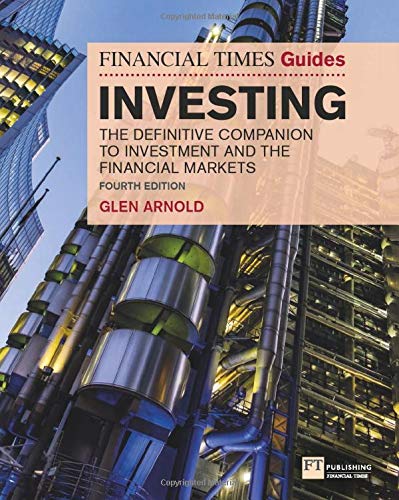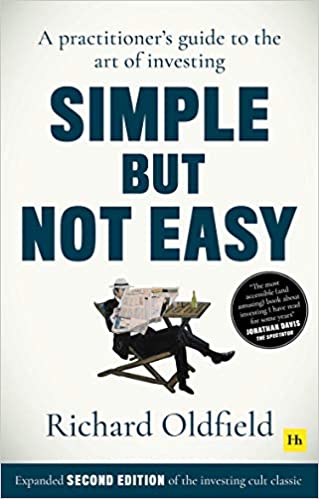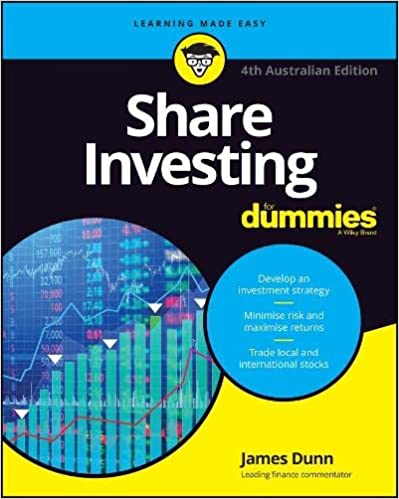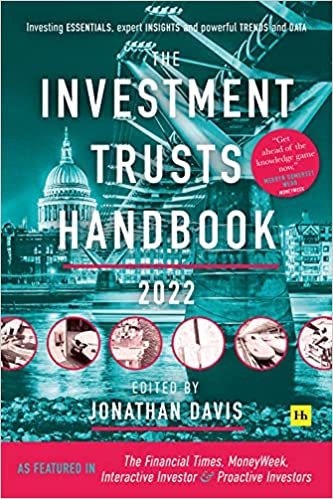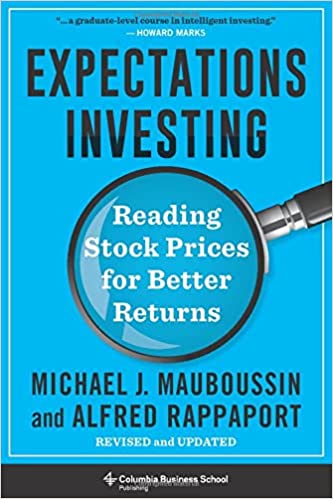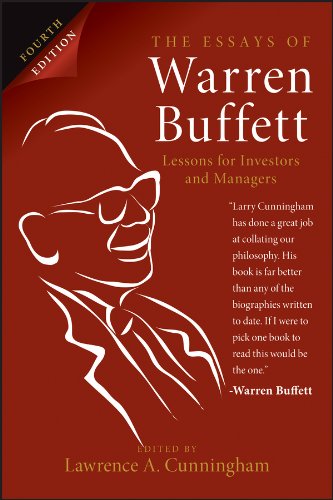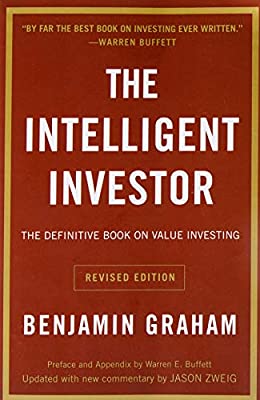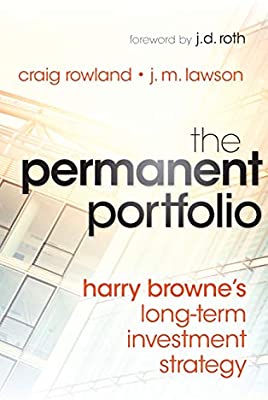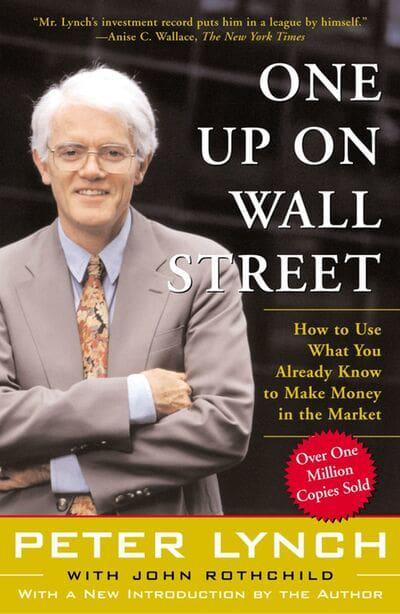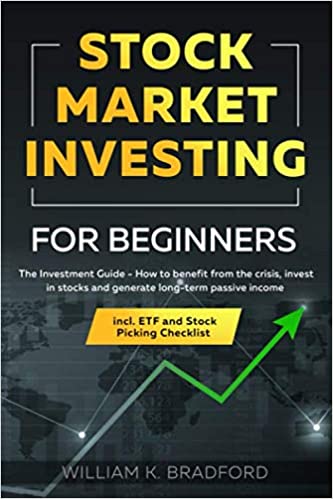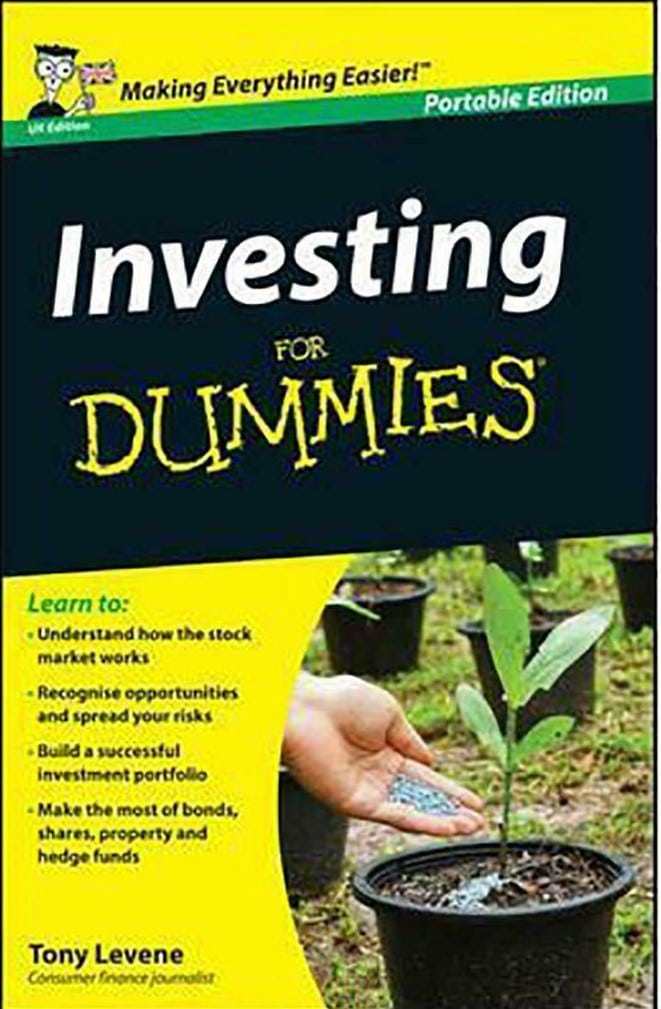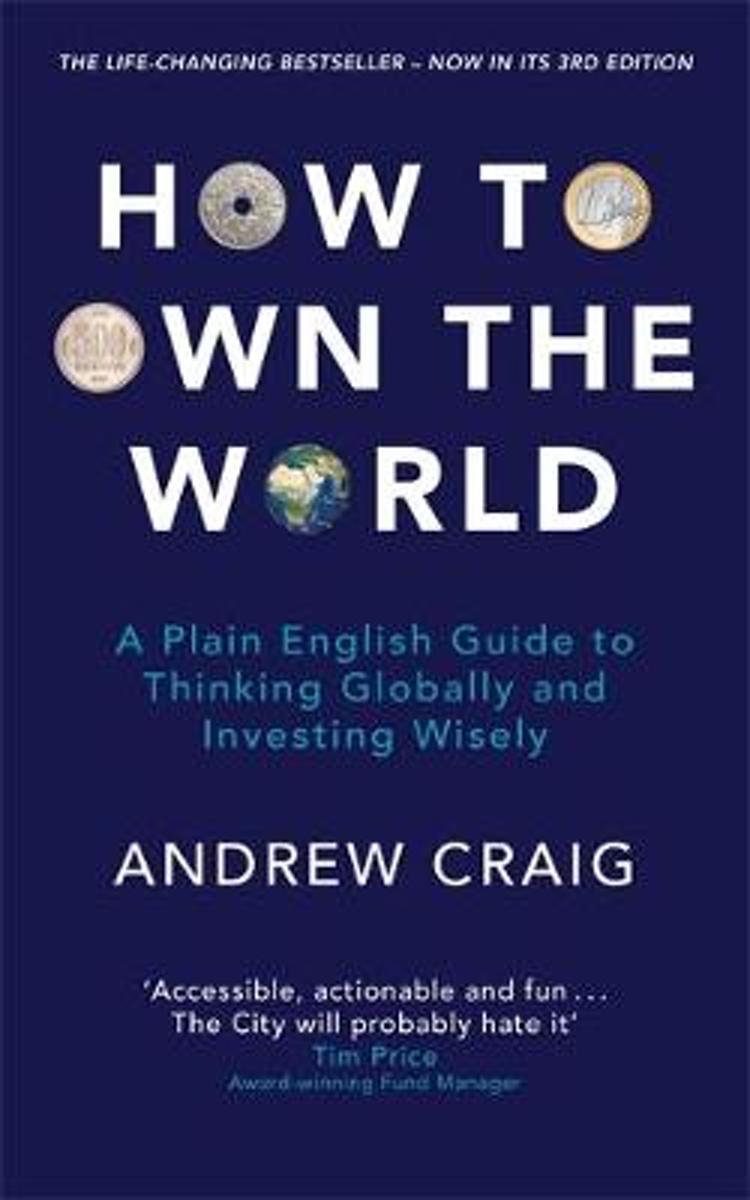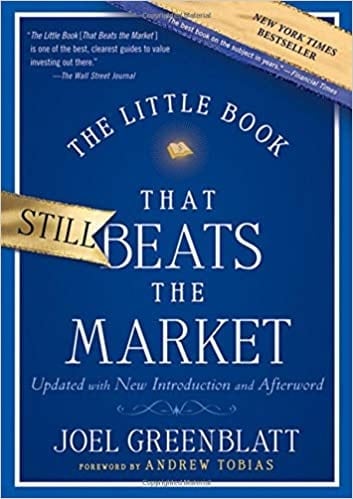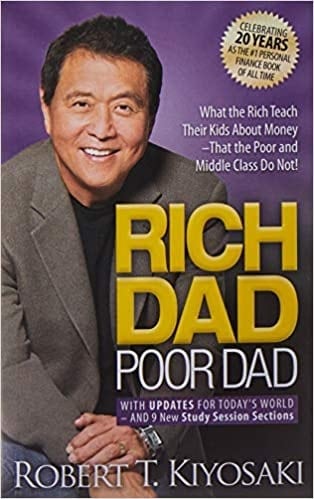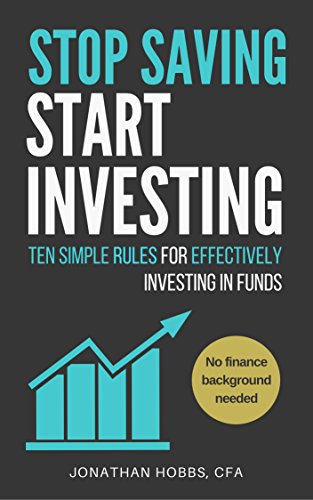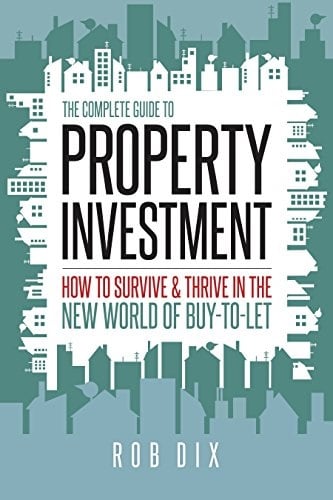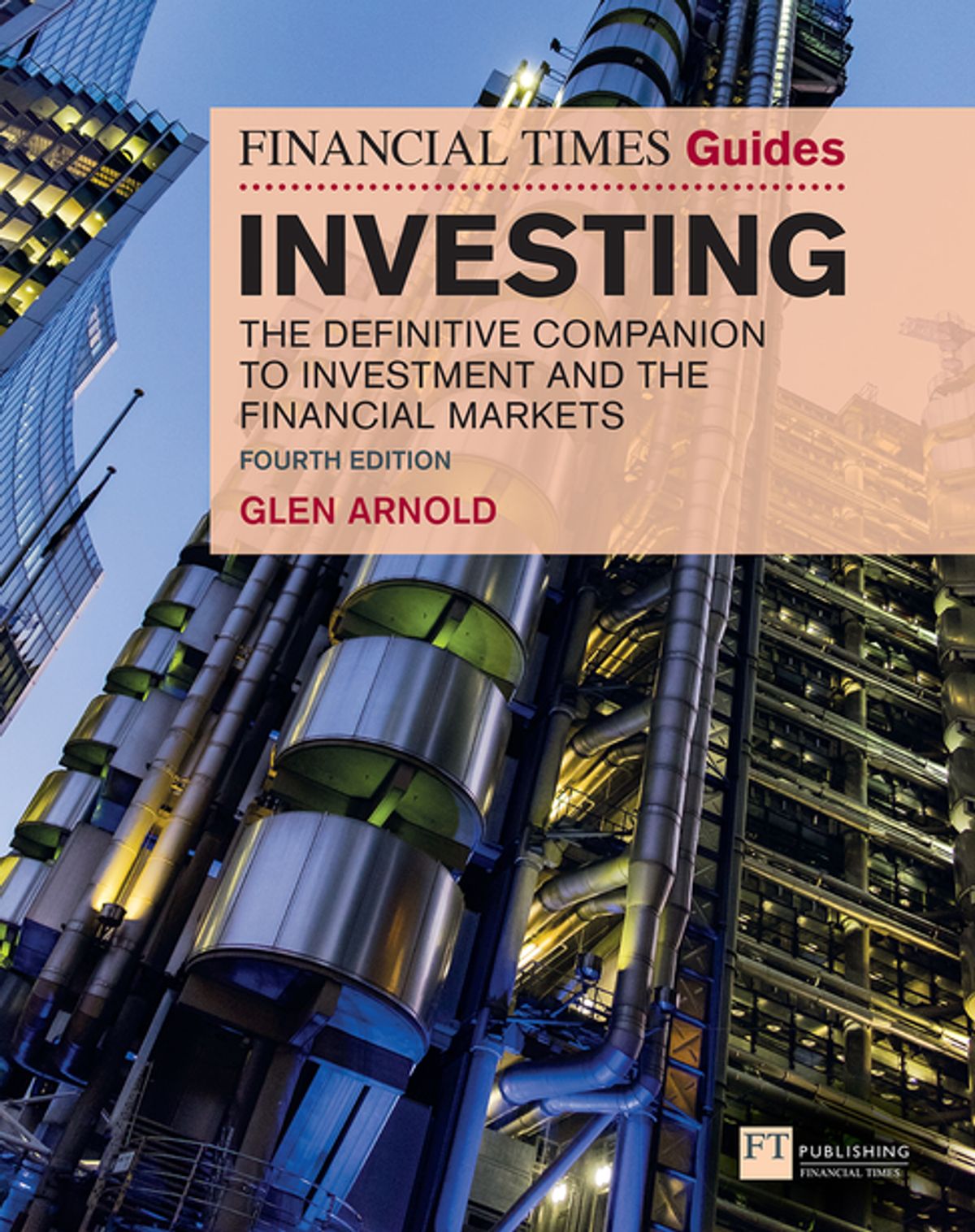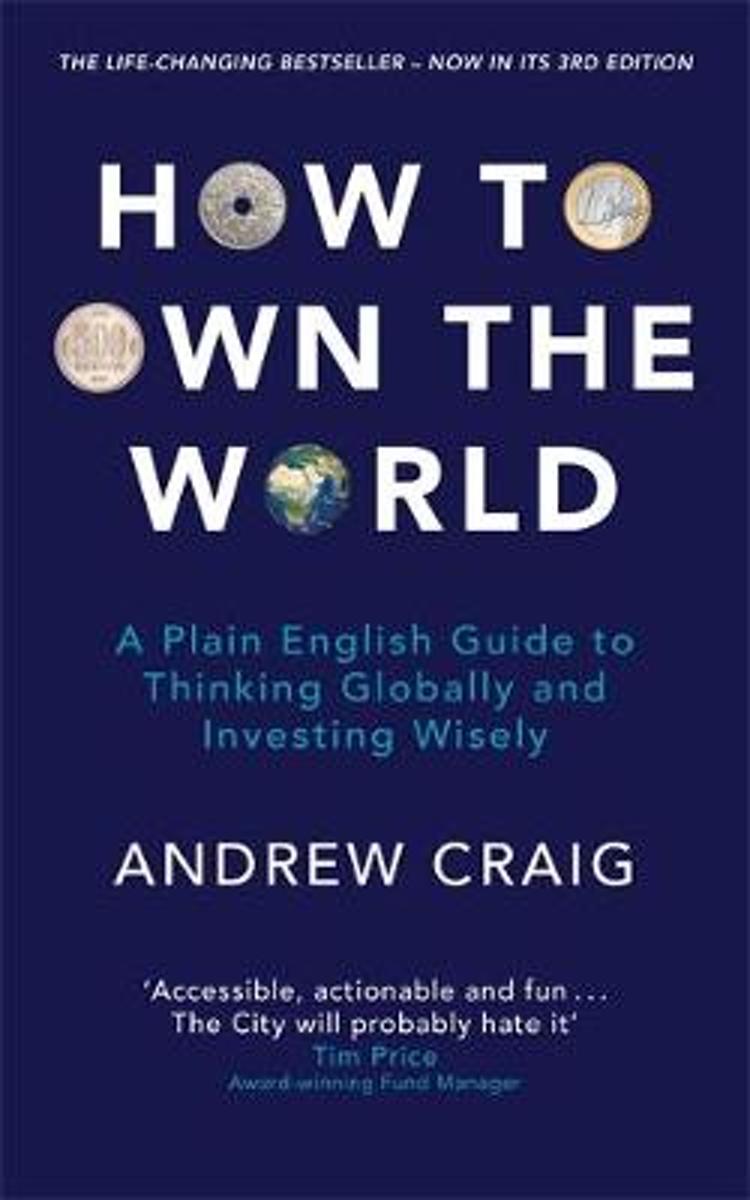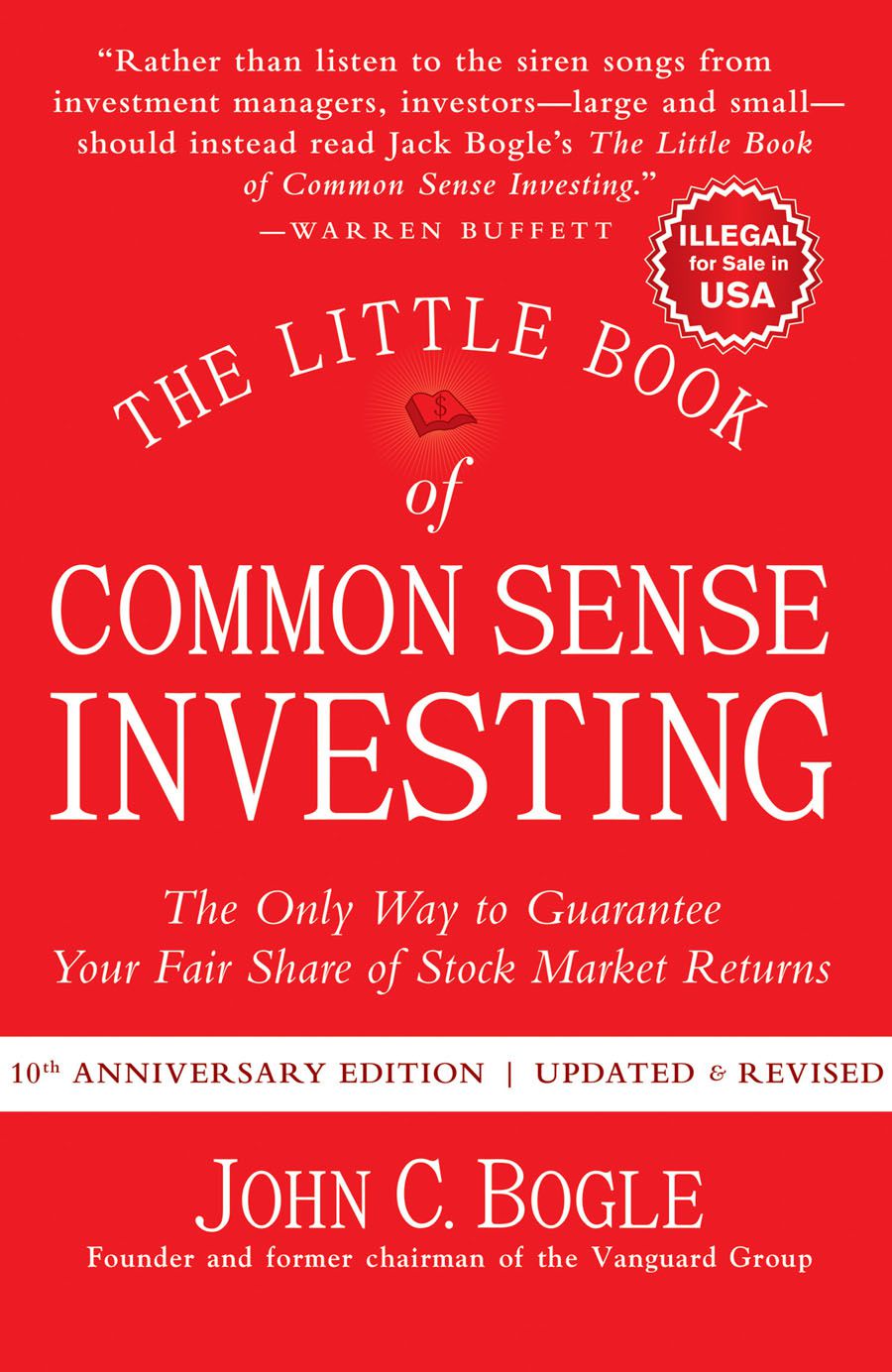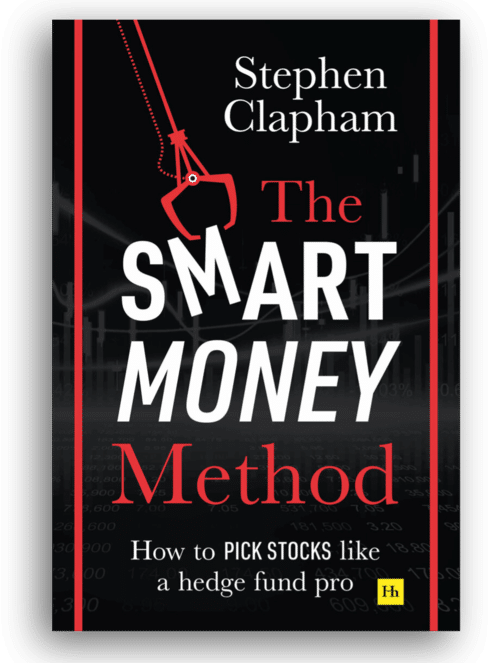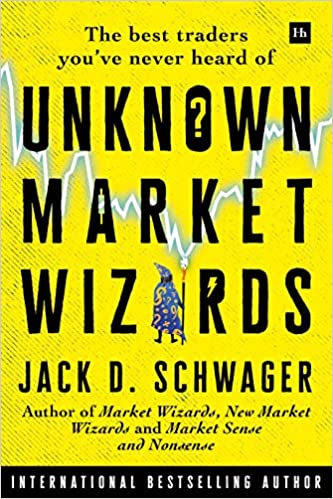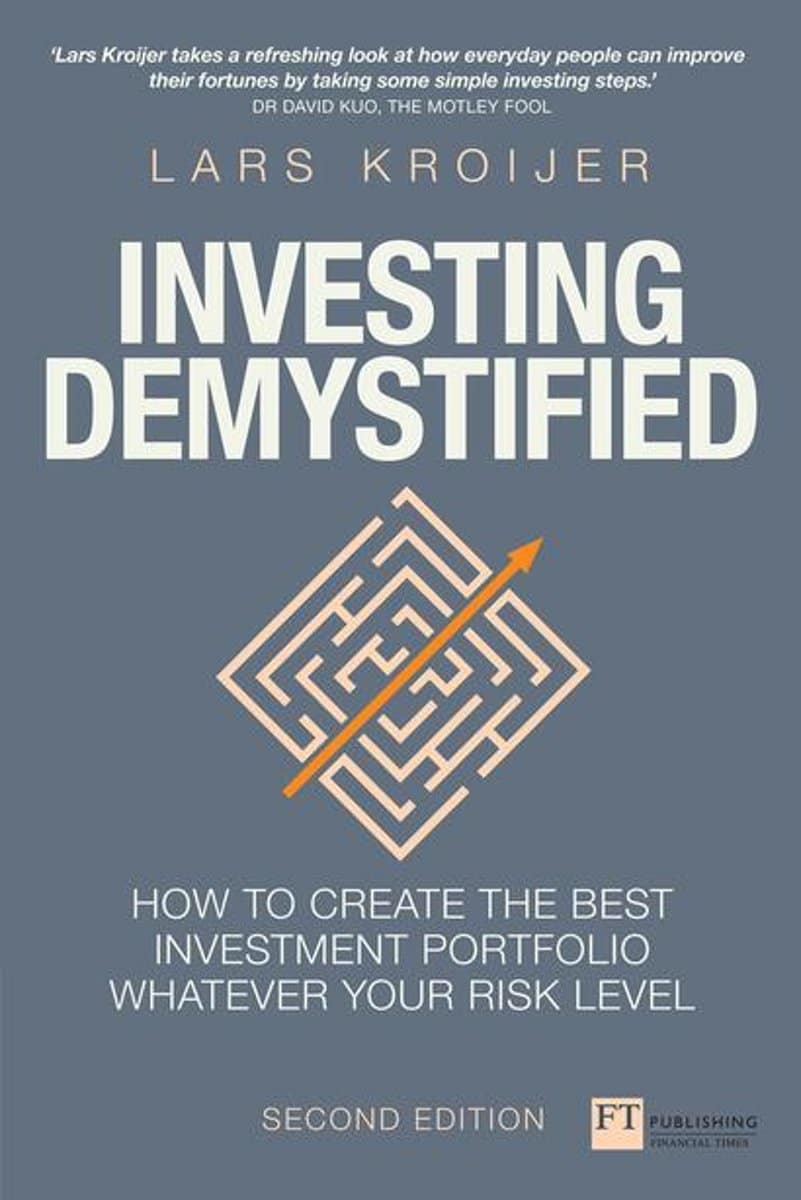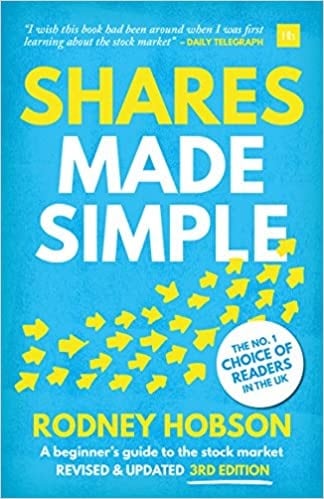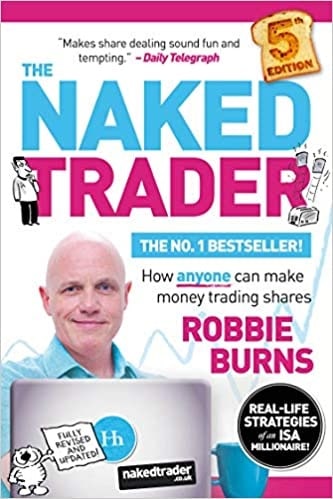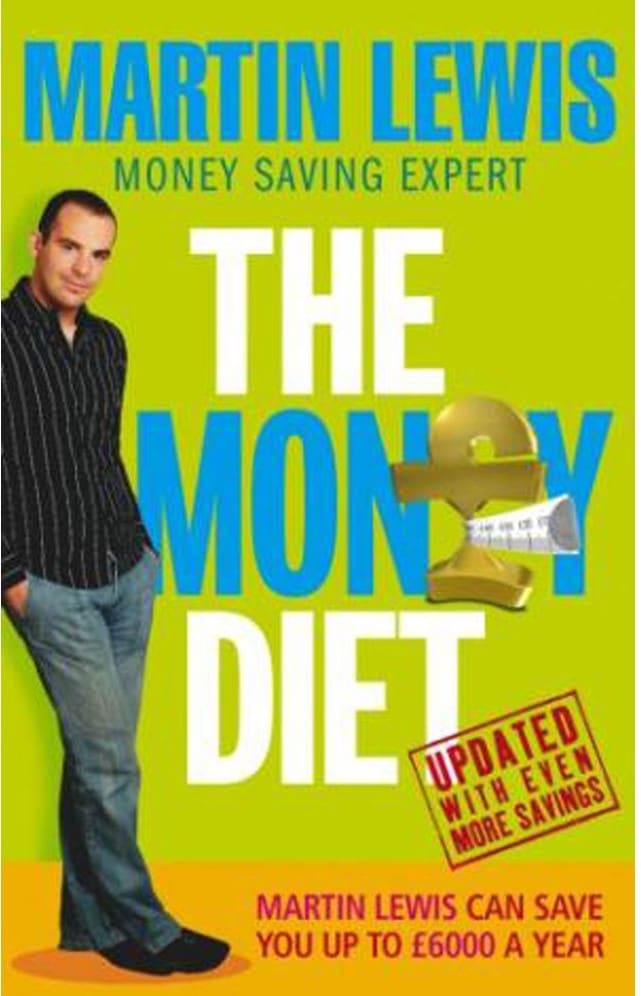Last updated: 21 January 2024.
Hey there! Welcome to our list of the 10 best investing books for 2024! We've handpicked some fantastic reads for you, and guess what? There are even more curated collections of top investing titles that we're pretty sure you're going to absolutely love.
Now, let's dive into the world of investing – a topic so massive we could chat about it for weeks, maybe even months! The authors behind these books have truly mastered the art of being selective. We get it, investing is a vast subject, and no single book can cover every nook and cranny. But fear not, these authors have a knack for delivering the goods in an engaging and often downright entertaining way!
Here's the best part – all the investing books we've featured on this page are super beginner-friendly. No need to stress about having tons of prior knowledge; these authors have got your back. Plus, the price tags won't break the bank, ranging from a budget-friendly £5 to £30. So, why not grab a few of these gems? You'll be getting the same value as an expensive seminar, but for only a fraction of the cost. Your wallet will thank you! Ready to embark on your investing journey? Let's get started!
They can even be read for free with Amazon's Kindle Unlimited free trial.
Click on any title below to see the latest price from Amazon, you'll be shocked at how affordable the most popular titles are. As an Amazon Associate, I earn a small commission from qualifying purchases which helps to support this site. This does not impact how I compile the list. Happy reading!
Discover prime books on investing and finance
No boundaries, just your curiosity- Invest with confidence
- Finance industries
- Real estate & real assets
- Exotic investments
- The bigger picture
Books reviewed
Financial Expert 2024 Book Awards
Gold Prize
Financial Times Guides: Investing by Glen Arnold
Classic investment books - the best of all time
These classic money titles were authored 10+ years ago and have sold over 1 million copiesDownload all these investing books for free with Kindle Unlimited
You DON'T even need a Kindle device to download booksHere's a useful tip that will save you £100+ on investing books. Sign-up to Amazon's Kindle Unlimited free trial, which offers access to all titles for free for 30 days.
- There's no obligation to continue with a paid subscription.
- You don't even need a Kindle to enjoy - any device will do.
If you're cost-savvy, you'll already be calculating the savings you could unlock and the knowledge you could gain by downloading 5 books over the next 30 days.
My Top 10 Investing Books for 2022
Click covers to see latest reviews and prices1. Investing (FT Guide) - Glen Arnold
Financial Expert Rating:
Synopsis:
"The Financial Times Guide to Investing is the definitive introduction to the art of successful stock market investing by debunking the myth that investing is only for the wealthy.
Bestselling author Glen Arnold covers the basics of what investors do and why companies need them, through to the practicalities of buying and selling shares and how to make the most from your money. Learn how to understand different types of investment vehicles, pick the right companies and understand their accounts so you can compile and manage a sophisticated portfolio.
The fourth edition of this investing classic has been thoroughly updated and will give you everything you need to choose your shares with skill and confidence."
Who this investing book is for:
In 2024, this comprehensive guide caters to UK investors seeking immersion in financial markets. For those new to investing, it stands out as the go-to resource for understanding:
- How the stock market operates
- How companies report results
- The role of shareholders in this context
Unlike typical beginner guides focusing on personal experience, this book delves into the inner workings of investments, aiming to empower readers with a deep understanding of investment technicalities. In 2020, it emerged as the top-selling investing book among the featured titles on this page and it has remained on top ever since.
Financial Expert Rating:
Synopsis:
"The easy way to demystify the intimidating world of investing in the UK market.
Packed with tons of expert advice, Investing For Dummies UK 4th edition shows you step-by-step how to make sound, sensible investment choices whatever your budget.
All the major investment categories are covered for the smart beginner, while more advanced and alternative investments are presented for the more adventurous and experienced."
Who this investing book is for:
This book hasn't amassed a cult following but has an appreciative base of readers regardless.
Where Investing for Dummies excels is in the breadth of topics covered. This is a title which aims to tell you a little about a lot.
As a result, you'll finish this book knowing more about buying shares, weighing up the pros and cons of pensions, as well as being acquainted with the UK tax system for investors.
I personally rate this title highly because (an earlier edition) was a regular reference point for me when I began investing a decade ago.
Financial Expert Rating:
Synopsis:
"Discover the money secret understood by virtually every rich person in history. Turn hundreds into millions through the power of compound interest.
How to Own the World shows you that:
- No one is better placed than you to make the most of your money.
- You can do better than many finance professionals.
- Making money from your money is easier than you think.
- It's easier today than ever.
- It's time to start now."
Who this investing book is for:
An opinionated and informative title by former US Congressman speech writer and fund manager Andrew Craig.
A title aimed at beginners, yet with plenty to offer to financially literate readers, such as those from professional backgrounds.
Other reviewers have drawn attention to the fact that by avoiding mentioning any investment platform by name, Andrew writes with a degree of impartiality that is often absent from many other investing titles which feel self-promotional.
Financial Expert Rating:
Synopsis:
"The best-selling index investing bible offers new information and is updated to reflect the latest market data The Little Book of Common Sense Investing is the classic guide to getting smart about the market.
Bogle describes the simplest and most effective investment strategy for building wealth over the long term."
Who this investing book is for:
This book is for investors looking for a simple and effective investing approach. John Bogle promotes a minimalist approach to investing, which came to define his ground-shaking impact on the industry.
In short, it's about using passive funds to reduce investing costs and build a basic investment portfolio which will do the distance over the long term.
John Bogle is the founder of Vanguard, the leading provider of index funds in the US.
Financial Expert Rating:
Synopsis:
"Finally, private investors can learn the stock-picking methods used by top industry professionals.
Steve Clapham is a retired hedge fund partner who now runs Behind the Balance Sheet and trains stock analysts at some of the world’s largest and most successful institutional investors".
"A TREASURE TROVE OF IDEAS AND INSIGHTS FOR SERIOUS INVESTORS"
~ Investors Chronicle
Who this investing book is for:
This new title is a bible for stock pickers. If you run a portfolio which includes individual stocks and shares, you'll want to hear what Stephen has to say.
Look forward to insights on how to:
- Identify shady accounting and avoid dying companies
- Value any business to find bargain shares
- Decide when to buy and sell
- Monitor and manage your portfolio for the best results
- Navigate the consequences of COVID-19
Financial Expert Rating:
Synopsis:
"The Market Wizards are back! Unknown Market Wizards continues in the three-decade tradition of the hugely popular Market Wizards series, interviewing exceptionally successful traders to learn how they achieved their extraordinary performance results.
The twist in Unknown Market Wizards is that the featured traders are individuals trading their own accounts. They are unknown to the investment world. Despite their anonymity, these traders have achieved performance records that rival, if not surpass, the best professional managers."
Who this investing book is for:
A book incredible enough to intrigue any investor - beginner or experienced.
Some of the stories include:
- A trader who turned an initial account of $2,500 into $50 million.
- A trader who achieved an average annual return of 337% over a 13-year period.
- A trader who made tens of millions using a unique approach that employed neither fundamental nor technical analysis.
- A former advertising executive who used classical chart analysis to achieve a 58% average annual return over a 27-year trading span.
Click through to find out why this book has over 189 five star reviews on Amazon.
Financial Expert Rating:
Synopsis:
"The easy way to demystify the intimidating world of investing in the UK market.
Packed with tons of expert advice, Investing For Dummies UK 4th edition shows you step-by-step how to make sound, sensible investment choices whatever your budget.
All the major investment categories are covered for the smart beginner, while more advanced and alternative investments are presented for the more adventurous and experienced.."
Who this investing book is for:
This book offers a compelling reason why even investors with an adventurous risk appetite should buy risk-free assets such as government bonds.
This message has been slightly undermined by the further fall in interest rates on bonds since the book was published in 2017, however the overall principles still work.
Investing Demystified also devotes a good portion of the text to debunking myths about investing which won't go away.
And just who is Lars Kroijer? You can let him personally explain over on his YouTube channel.
Financial Expert Rating:
Synopsis:
"For the past ten years, Shares Made Simple has been the top choice of readers who want to know more about the stock market. Now in a fully revised and updated third edition, the book continues to tear away the mystique and jargon that surrounds the stock market.
Written by highly respected financial journalist Rodney Hobson, it takes you step by step through the most basic concepts of stock market investing, carefully explaining issues such as: - what shares are and how they are bought and sold - why share prices go up and down - why some companies' shares look cheap while others appear to be expensive - the hidden traps for the unwary.
This fully revised and updated third edition of this bestselling book sets out to create a level playing field between the stock market professionals and the small investor. No one needs to suffer pitiful bank interest rates when there is real money to be made in sharing the nation's wealth."
Who this investing book is for:
Now in its 3rd edition, Shares Made Simple by Rodney Hobson is the paperback guide to investing in the stock market.
A relief for those put-off by americanised references to 'stocks' and '401(k)s', Shares Made Simple is a beginners guide perfect for the UK investor thinking of making a foray into the stock market.
This isn't a detailed stock-picking guide, or a portfolio management textbook. It's easy to read, accessible, and explains the basics in a brilliant way.
Financial Expert Rating:
Synopsis:
"The most entertaining book on how to trade shares is back! Ever thought about investing in shares but got frustrated by all the gobbledygook? Bored by all the jargon? Then The Naked Trader is for you!
This is the book on stock market investing that you can actually enjoy, written in plain English, packed with real-life trading examples and full of candid advice that you just can't get anywhere else. It's the ideal friend for anyone who wants to make money in the markets.
In this completely updated and expanded 5th edition, Robbie Burns (aka the Naked Trader) gives you the lowdown on what you need to make money from today's markets without having to sit at a screen all day or swallow a financial dictionary. This brand-new edition contains even more of what made it so popular. "
Who this investing book is for:
This book is the perfect inspiration (and guide) for UK investors who fancy themselves as stock-pickers.
Robbie Burns is a day trader who never touched the city. Now he's back in a new edition of his best selling paperback to explain how you might try your hand at actively trading.
Irreverent and witty throughout, the book even features 'The Naked Trader Quiz' as a fun test of your comprehension towards the end of the title.
Financial Expert Rating:
Synopsis:
"What we all need is detailed, no-nonsense Money Saving advice about organising credit cards, finding the cheapest deals for utilities, getting the best mortgage deals and how to haggle with every shopkeeper - in other words, how to make sure we're not wasting money.
Now with 100 extra Money Saving pages, in this edition of the bestselling The Money Diet, Martin Lewis shows you how to be canny with your finances, and provides clear-cut advice on how to pay bills, ways to cut spending, which banks to use and how to choose the best deals on an even greater range of products."
Who this investing book is for:
As I highlight in my guide on how to Retire at 50, the amount of wealth you can accumulate will be capped by your ability to cut back on spending.
This is why I've included this excellent title from legendary money-saver Martin Lewis in this investing books list.
This book serves as an excellent companion to the rest of the titles above. Most of all, it will help you increase the sums of money that you have available to invest in the first place!
Martin Lewis found widespread fame in the UK by founding MoneySavingExpert.com. A site which stood up to the unscrupulous practices of banks and lenders, help find savers great deals, and encouraged us all to get more for our money.
Download all these investing books for free with Kindle Unlimited
You DON'T even need a Kindle device to download booksHere's a useful tip that will save you £100+ on investing books. Sign-up to Amazon's Kindle Unlimited free trial, which offers access to all titles for free for 30 days.
- There's no obligation to continue with a paid subscription.
- You don't even need a Kindle to enjoy - any device will do.
If you're cost-savvy, you'll already be calculating the savings you could unlock and the knowledge you could gain by downloading 5 books over the next 30 days.
The Financial Expert™ Best Investing Book Challenge

I challenge you to read one brilliant book per month and see if it revolutionises your investing style!
Welcome to the Financial Expert™ Best Investing Book Challenge – a beloved feature of our website!
This personal development challenge is not bound by New Year's resolutions; you can kick it off any time during the year. Don't wait! Embrace the benefits of this powerful habit change today.
The rules are as friendly as they come:
I challenge you to pick up one investing book per month for the next year and discover your new favorite!
This challenge aims to open up your perspective on the stock market. As we embark on our investment journey, we often absorb a ton of information, eagerly seeking more. However, over time, we might become creatures of habit, closing ourselves off to new ideas and relying on superstitions.
The Best Investing Book Challenge was born out of my desire to expose myself to fresh investing thoughts and strategies. Some readings I loved, others I really felt challenged by, but either way, engaging with these titles stimulated a level of critical thinking I hadn't experienced since I began investing a decade ago.
Here are a few friendly tips:
- Stock up on books for the next few months, so when a new month rolls around, your next book is right there on your bedside table, asking to be opened!
- Pick a variety of styles to keep the challenge exciting and diverse in opinion.
- Choose at least one book that you don't think you would enjoy – it might end up surprising you the most!
- If you're short on time, audiobooks are absolutely fine!
Wondering where to begin? My list of the 10 best investing books above is as good as any place to start. I've intentionally included a mix of different writing and investing styles to ensure it caters to a wide audience.
Wishing you the best of luck on this exciting journey! Happy reading!
Even the best investing books offer a single perspective
"Truth is what you see. Opinions are what you hear. Facts are what you know."
In the realm of investing literature, publications can be categorized into two distinct types: informative and opinionated. Both hold value, but distinguishing between the two is crucial.
The Financial Times' definitive guide exemplifies an information-centric approach, meticulously detailing the workings of the stock market. Conversely, John Bogle's "The Little Book of Common Sense Investing" adopts a decidedly opinionated stance, endeavoring to convince readers of the superiority of his investment strategy over others.
Navigating the plethora of investing titles demands the application of critical thinking skills. One must discern whether a book seeks to inform or persuade, as the insights gained contribute significantly to one's financial education.
The investing landscape boasts a myriad of strategies and styles, each championed by a dedicated group of supporters. However, conflicting ideologies abound, making it impossible for every strategy to be universally correct.
In conjunction with investing courses, financial advisors, and personal investing experiences, books serve as pivotal tools in comprehending the intricacies of the investment world.
Caution is warranted, as adopting a mindset that treats the opinions of esteemed investing book authors as indisputable facts can lead to a skewed understanding. Rather than progressing toward an objective truth, one risks aligning with the ideologies of the authors they happen to read.
Investing books to avoid

Very legitimate testimonial"Using the tricks contained in this book, I took my investment portfolio from $10k to $1m in 46 weeks!"
I deliberately avoided a whole sub-genre of investing books when picking my 10 favourite titles above.
I gave a very wide berth to sensational get-rich-quick investing books.
You might know the type.
They will usually
- Focus on a single asset class
- Include a novelty factor
- Feature eye-catching claims about quitting your 9-5 job
I won't refer to any titles by name as I don't want to provide free publicity. But I consider any of the following words in a book title to be red flags:
Millionaire, Gold Mine, Rich, Secret Techniques
You'll find some of these books in local shops, but its on the web where they dominate.
You'll often find them being marketed or handed out for free as part of expensive video courses, investment training programmes and investment scams.
As you get lost in the soothing imagery of palm trees, sports cards and villas, it's easy to forget that the 'millionaire secret' might actually be about using your Stocks and Shares ISA allowance.
In fact, almost everything in the marketing for get-rich-quick investing books is a world away from the real principles of investing such as:
- Understanding risk,
- Investing cautiously, and
- Diversifying your portfolio
Is this surprising? Not really. These concepts don't feature because they get in the way of the real message that the marketers are trying to sell - that buying this book is going to change your life for the better.
Selling the dream of a work-free future is far more lucrative than trying to charge £59 for a detailed guide to pension accounts.
And this is why I don't even consider these to be investing books. Their authors don't care about investing excellence, they just want to make a quick buck from people's hope for a better life.
To help you filter the wheat from the chaff in this sub-genre, I've created a separate guide to the best get rich quick books.
Selecting the best UK investing books for beginners

"The illiterate of the 21st century will not be those who cannot read and write, but those who cannot learn, unlearn, and relearn."
Welcome to this thoughtfully curated guide housing the best investing books tailored for beginners in the UK.
Now, how does one go about selecting the optimal investment books (UK) for their personal collection? Here are my recommendations:
-
Choose a title that excites you: Opt for a book that sparks your interest and keeps you engaged.
-
Look for easy-to-read language: Seek books that use accessible language, making the subject matter more digestible.
-
Choose books with more breadth and less depth: Your first investment book need not cover everything. Focus on broader concepts, leaving room for future exploration.
Remember, you have a lifetime to delve into stock market books and fill in the gaps. The initial book isn't tasked with teaching you everything but rather aims to grab your attention and spark your interest.
The ideal investing book for beginners should be informative yet leave you hungry for more. Why the emphasis on wanting more? Because, contrary to what one might expect, the best books on stocks and shares for beginners shouldn't necessarily cover everything.
Investing, much like any technical topic, is best approached gradually. At the outset, you may not even realize the extent of what you don't know. Taking a high-level approach allows you to orient yourself and identify areas where you want to focus.
Approach topics in layers, starting with core principles, moving through major asset classes, and eventually delving into the process of placing your first trade. The titles featured here represent the cream of the crop, merely the tip of the iceberg when it comes to investing books on the stock market.
Learning about investing is a marathon, not a sprint. As a beginner, choose books that you genuinely enjoy. There's no need to subject yourself to boredom, fall out of favor with investing literature, or dive prematurely into the market.
Manage your expectations realistically when gauging what an investing book can achieve for you. While a great book won't provide 'live' commentary on the stock market or suggest the best companies to invest in, it will equip you with the tools to make informed judgments on your own. Now, let the journey into the fascinating world of investing begin!
The top investing authors currently featured on this site

"Congratulations to Glen [Pictured] and all of the other authors who earned a spot in the top 10 list or other investing book shortlists."
The following authors have at least one money or finance book featured on this page:
The top ten
- Glen Arnold - Investing: The Definitive Companion to Investment and the Financial Markets
- Tony Levene - Investing for Dummies
- Andrew Craig - How to Own the World
- John Bogle - The Little Book of Common Sense Investing
- Stephen Clapham - The Smart Money Method
- Jack D. Schwager - Unknown Market Wizards
- Lars Kroijer - Investing Demystified
- Rodney Hobson - Shares Made Simple
- Robbie Burns - The Naked Trader
- Martin Lewis - The Money Diet
The investment book shortlists
The following authors have at least one title featured as a thumbnail in the initial booklists for beginners etc.
- Terry Smith - Investing for Growth
- Lawrence A Cunningham - The Essays of Warren Buffett
- Benjamin Graham - The Intelligent Investor
- Craig Rowland & J. M Lawson - The Permanent Portfolio
- Peter Lynch - One up on Wall Street
- William K. Bradford - Stock Market Investing
- Joel Greenblatt - The Little Book that Beats the Market
- Robert T Kiyosaki - Rich Dad Poor Dad
- Jonathan Hobbs - Stop Saving Start Investing
Other great finance authors worth checking out

"Novice and amateur investors alike will be thrilled and captivated by the volume of high quality investment titles published each year."
We didn't have enough space on this page to showcase all of the investment books we love.
The intrinsic value of an approachable first read is priceless if it will set you off in a sensible direction. Imagine the impact on your net worth of being able to build a diversified portfolio of shares, REITs and bonds. Imagine the difference in your quality of life through having a retirement fund that is comfortable rather than 'just enough'.
If you're a new investor, here are the other authors of bestsellers that we encourage you to research further. We've also named one of their most famous (or most relevant) titles against each author name.
The top ten
- Burton Malkiel - A Random Walk Down Wall Street
- Philip A. Fisher - Common stocks & uncommon profits
- J. L Collins - The Simple Path to Wealth
- Nassim Taleb - Black Swan
- Adam Smith - The Money Game
- James Montier - The Little Book of Behavioural Investing
- Mark Simpson - Excellent Investing
- Alice Ross - Investing to Save The Planet
- Justyn Walsh - Investing with Keynes
- Morgan Housel - The Psychology of Money
- Laura Whateley - Money: A Users Guide
- Rob Moore - Money
- David Stevenson - Investing in Shares for Dummies
Why are UK investing books taking the world by storm?

Statistics from UK book sales monitor Nielsen BookScan show that the print book market in the UK grew 2.1% in value and 0.3% in volume in 2018. In total, 190.9m books were sold last year, for £1.63bn
The UK is home to one of the world's financial centres - London.
Why is London a financial capital?
London stands as a global financial capital, renowned for its dynamic and robust financial sector. Its status is rooted in historical significance, with London evolving as a financial powerhouse over centuries. The city's strategic location, nestled between major time zones, facilitates seamless global transactions. London's well-established legal and regulatory framework ensures stability and trust, attracting businesses and investors alike.
The London Stock Exchange, dating back to 1801, is one of the world's oldest and largest stock exchanges, serving as a pivotal hub for equity trading. The city hosts a plethora of international banks, financial institutions, and investment firms, fostering an environment conducive to innovation and collaboration.
London's diverse and highly skilled workforce contributes significantly to its financial prowess. The city serves as a melting pot of talent, drawing professionals from around the globe, further solidifying its standing as a financial epicenter. With a commitment to innovation, a robust infrastructure, and a rich historical legacy, London continues to play a pivotal role in shaping the global financial landscape.
This isn't to say that the UK is free from corruption, it's worth pointing out that the relative stability of the UK's legal system actually makes it attractive to money launderers (read more: Money laundering books).
What does London excel at?
As of 2021, London remains the city with the largest volume of transactions for the following financial markets:
- Derivatives
- Forex trading (see books)
- Money markets
- Gold & silver markets (see books)
This scale means that a total of 1.1m workers (3.3% of the working population) have a job in finance.
For books about key financial industries, you can visit the following pages which will share insights into these different financial sectors:
A natural consequence of this high volume of financial transactions is that the UK also employs a lot of accountants to help record, monitor and analyse the activity. Auditors work to observe the output of accountants and provide assurance that financial figures are materially correct.
From industry veterans to authors
After gaining these valuable experiences, many investors, fund managers and bankers want to later write about their experiences or share advice with younger finance professionals or investors.
It's therefore no surprise that large publishing houses such as Wiley and Pearson publish over 100 finance titles each year.
This incredible diversity means that an avid investing book reader such as me (and many of you) will find that there are almost too many investing books and too little time to read them!
Financial planning for your future with the best investing books

"Long term thinking and planning enhances short term decision making. Make sure you have a plan of your life in your hand, and that includes the financial plan and your mission."
In my view of the financial world, there are two types of investors:
- Short term speculators, aiming to generate a quick buck to supplement their income
- Long term investors, aiming to grow their wealth to achieve life goals.
The types of investing books read by each group are almost entirely distinct.
While the first will be interested in quantitative analysis books and books about cryptocurrency, the needs of the long term investor will be far broader.
A long term investor doesn't just want to understand how an investment works, but the entire process and science behind crafting the perfect investment portfolio.
Planning for your future with the best investing books
The best financial planning books tackle this in a logical order.
First they will explain risk tolerance and time horizon to prompt investors to consider whether equities and property are appropriate for them.
Next, the best portfolio management books will explain the science of diversification, and how securities should be expertly combined to reduce the overall risk of an investors holdings. This is a technical area which can give an investor a real edge when trying to have their cake and eat it.
Ultimately investors need to work backwards from their objective, be it to retire early (See the best financial independence books) or to plan for a comfortable retirement (see best retirement planning books).
Along the way, smart investors will always keep an eye on tax. Paying unnecessary tax is akin to making a poor investment. If you can keep hold of more of you money, it's common sense to do so. The best books about paying less tax will help investors understand the tax rules and use these to their advantage in a legal fashion.
Finally, as we reach the end of our life, our thoughts turn to our legacy and how we can pass on as much of our wealth as possible to the next generations. The best estate planning and inheritance tax books are an invaluable guide at this stage. The headline rate of inheritance tax is 40% in the UK, which will naturally cripple any large estate as it is passed onto children, charities or other friends and family.
Managing your finances with popular titles in less than one week

"Look everywhere you can to cut a little bit from your expenses. It will all add up to a meaningful sum."
Before you can invest, you must first save.
Saving money is the bedrock of any successful investor. In fact, I would go as far as saying that the most crucial driver of successful investing is NOT whether they can pick the right fund to invest in, nor whether they can lean into risky asset classes. Instead, it's how much of their income they can save.
The best books about saving money don't take this skill for granted. Their authors expect you to be human, and to make financial mistakes from time to time. They're designed to give you the skills to get it right more times than you get it wrong. That's all you can ask for!
The traditional route to go is budgeting & money management books, which teach a framework for ensuring that you'll end each month with more money than you started.
Saving success is a spectrum. The first target is to spend less than you earn, resulting in an ability to pay down debts. The best books about getting out of debt will suggest many helpful ways to save the pennies and target your repayment against different debts in the most profitable way.
Before you invest in anything more complicated than a savings account, you need to educate yourself with the best personal finance books to standard where you feel comfortable that you understand all of your options.
It's about investing in yourself.
Learning the basic principles of investing through books

"You've waited your whole life to invest. Taking a few more weeks or months to educate yourself before finally risking your money is essential."
With investing being such a vast topic, many beginners to investing will struggle finding the right place to start.
In this section, we'll consider which investing books are great first books, and which books will guide you further into investing infosphere on from that point onwards.
Your first investing book
If you're a complete newbie and haven't read an investing book before, then I recommend a guide written squarely at beginners.
You'll appreciate that authors writing for beginners won't stuff their texts full of acronyms, or jumble financial concepts together. They'll approach topics in order, and allow you to slowly build up a working knowledge of all the concepts without feeling overwhelmed.
It may sometimes feel like you're being taken through the topic at a snails pace, and for passionate or excited investors-to-be, this can be frustrating. However, I think it's really worth taking the time to ensure your grasp of finance principles is very strong before jumping into the market.
Follow-on investing books
Besides cash, the most popular asset classes are equities, bonds and property.
Because you already have a grounding in the basics, it follows that your next books should explore each of these investments. They will help build familiarity with the characteristics, terminology and mechanics behind each of these investments.
The best stocks and shares books will introduce you to the most dominant form of investment for retail investors - equities.
The best bond investing books will explain what is the most efficient way to generate the maximum yield from this terribly important asset class.
The best property investment books are be written with either buy-to-let investors or property developers in mind. They'll point out what you should be looking for when searching for properties, and how to enter and exit property investments at the lowest cost.
Exploring exotic options with specialist investing titles

"We use options and more exotic derivatives sparingly. We try to catch new trends early and – in later stages – we try to catch trend reversals. Therefore, we tend to stabilize rather than destabilize the market. We are not doing this as a public service. It is our style of making money."
Exotic investments are the domain of sophisticated investors.
You are a sophisticated investor if you have had personal experience investing in high-risk assets, such as unlisted equity or private debt instruments, or if you've developed a good working knowledge through exposure in your professional capacity, such as through a directorship or partnership position.
Some investments will screen potential investors and only accept investors who meet this high bar. Others will allow retail investors to invest, provided they pass self-certification and risk questionnaires.
Examples of book categories you might wish to explore to learn more about exotic investments include:
- Structured products books
- Commodities books
- Gold & silver investment books
- Cryptocurrency books
- Land & forestry investment books
Each of these asset classes are traded on different markets to stocks and shares, through different intermediaries and they also carry different risks and rewards.
Exotic investments tend to carry a high risk, high return profile. They are generally less liquid - investors may be 'locked-in' to their investments for long periods. It follows that they are therefore only suitable for people who can commit to an investment for 5 - 10 years.
Investing books about these specialist assets are considered essential before investing, due to the high risks involved.
Business & economics - understanding the machinery of money

"It is no crime to be ignorant of economics, which is, after all, a specialized discipline and one that most people consider to be a ‘dismal science.’ But it is totally irresponsible to have a loud and vociferous opinion on economic subjects while remaining in this state of ignorance."
Behind the dividends that appear on your stockbroker statement, the share price gains you record on your tax return, is industry. A thriving world of real business which at times can seem entirely disconnected from the process of investing.
The best value investing books will arm you with the tools to critically examine and value companies to help you pick shares which represent a bargain.
Business books can break apart this seeming mess of departments, policies, behaviours and strategies, into an intelligible framework.
Unless you have the luxury of a consultant job which grants you access to tens of board-rooms each year, then the best business books are probably the best way to learn more about how great businesses and terrible businesses are run.
Behind every successful business is usually a ground-breaking entrepreneur. It's fascinating to study the lives and philosophies of wealthy and successful entrepreneurs. Reading the best entrepreneurship books can help you understand how we too can take the right decisions to lead us to greater wealth.
Were you to zoom out further, you may wonder about the laws and rules which seem to govern how markets operate, how prices are set, and why countries and governments act the way they do. The best economics books can explain the principles of the economic universe.
As an investor, all of these dimensions; business, entrepreneurship, and economics are worth understanding.
These are ultimately the forces which determine whether your investments make money or not. I wouldn't like to be fully invested without having at least an outline understanding of how business works.
Explore the best books in more genres
General personal finance
Trading the financial markets



